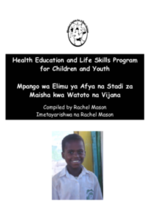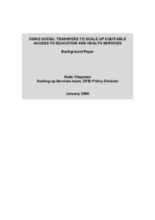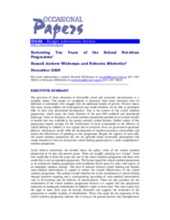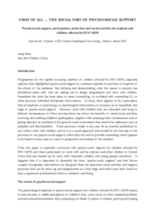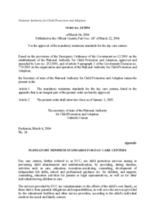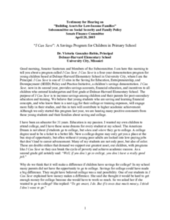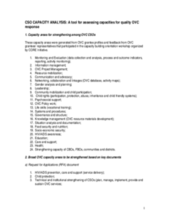Displaying 321 - 330 of 350
A trainer’s guide for teaching health and life skills to children and young adults based on the experiences of the Mkombozi Centre for Street Children in Tanzania.
This paper focuses on the impact of one form of demand-side policy option - social transfers, particularly cash transfers and vouchers - on access to health and education services by the extreme poor.
A manual outlining a detailed 3-day training program in how to respond to the psychosocial effects of disasters. Designed for use by psychosocial program administrators or trainers.
Reviews the history, effectiveness, and efficacy of the School Nutrition Programme in South Africa. Conclusions strengthen arguments for programme expansion.
Emphasizes the social dimensions of psychosocial support interventions, including participatory groupwork and a focus on reducing stigma and discrimination. Argues that psychological interventions such as counseling should never be a first step.
A set of standards for early education and childcare services for children and young people up to the age of 16 years operating in the public, private and voluntary sectors, and in domestic or non-domestic premises.
Minimum standards for day care centers in Romania.
This document highlights a children’s saving program in the state of Missouri, USA. The five-year initiative focuses on increasing financial knowledge and self-efficacy, as well as saving accounts, among children and parents. The end goal is to increase student engagement in post-secondary education and training.
This document provides a tool that was used to assess broad capacity areas for quality OVC response in Uganda.
Comprehensive toolkit and resource pack for mobilising community-led OVC care. Includes detailed resources for training home visitors.

